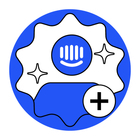We're looking for ways to cut down on the number of snoozed chats we have. I’d love to hear from anyone using Intercom who has found effective practices for reducing the frequency of snoozed chats!
Answered
Reducing Snoozed Chats
Best answer by Milan
We're looking for ways to cut down on the number of snoozed chats we have. I’d love to hear from anyone using Intercom who has found effective practices for reducing the frequency of snoozed chats!
Hello
To be able to answer that you need to ask yourself (your team working in Intercom) why are you snoozing the conversations? Usually it’s due to one of these two reasons:
- You (your team) were not there on time to answer the initial question and user went offline so even if you provided the question you are not sure if that is it or there is more that customer wanted. So you snooze it and wait.
- You (your team) did not have the complete answer at that time and asked user to wait while you gather enough info, so you snooze this for a defined time when you (teammate) expect(s) that you (teammate) will have relevant info to send.
Both reasons are depending on you (teammates).
So:
- try replying to conversations as soon as possible. If that is not possible utilize self-help features that can provide the answer without teammate - workflows with predefined flows providing enough info, use Help Center and share articles in those answers, and utilize FinAI to address some of more difficult questions.
- set up better processes - when to snooze, for how long. Your team needs to be aligned on this.
- automatically close the conversations that are snoozed and that are waiting for a user to provide some answer - user workflows to do that (do not forget to close it with a polite message)
- keep on reviewing why and how snoozing is happening and change things that you might have set up (that are recommended above)
Cheers!
Join the Intercom Community 🎉
Already have an account? Login
Login to the community
No account yet? Create an account
Intercom Customers and Employees
Log in with SSOor
Enter your E-mail address. We'll send you an e-mail with instructions to reset your password.






